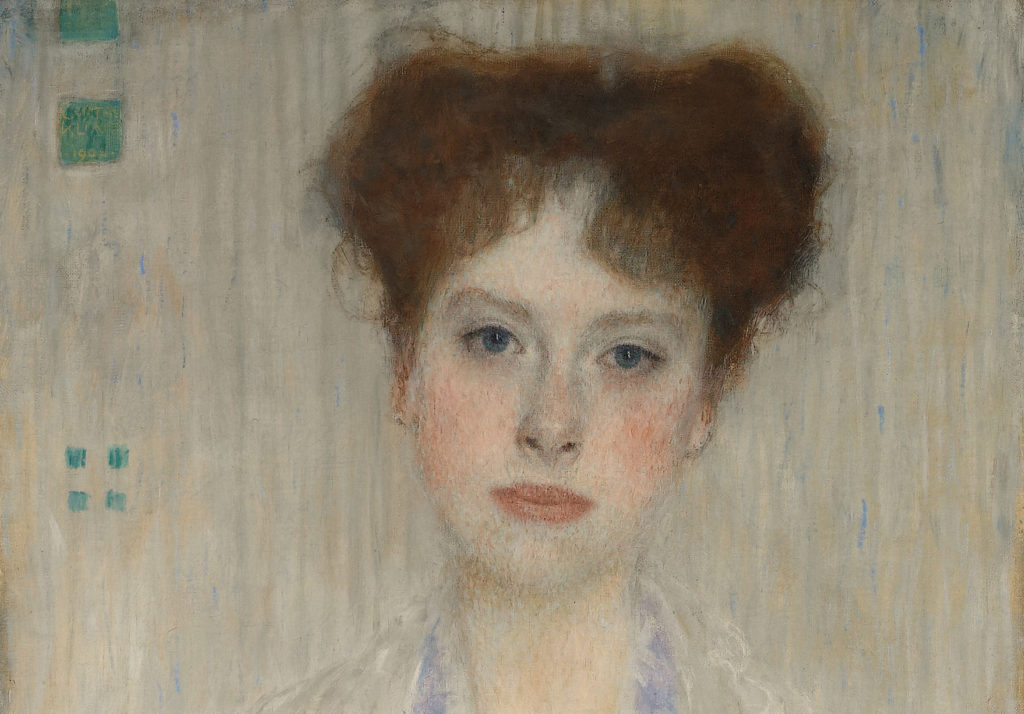Law & Politics
Nazi-Looted Klimt Portrait May Be Sold by Subject’s Granddaughter


Sarah Cascone

An ongoing ownership dispute over a portrait by Gustav Klimt may be resolved in the artwork’s sale, reports Reuters. The painting depicts Gertrud Loew, who was its owner from 1902 until 1938, when, fearing the Nazi-regime, she fled her native Austria.
Loew is shown wearing a long, flowing dress. Klimt was commissioned to create the work by her father, a Jewish doctor and friend of the artist. No one knows for certain what became of the painting after Loew emigrated to the US (a friend of the family who was holding onto it for Loew may have given it to her boyfriend in the Gestapo), but by 1942 it was in the possession of Gustav Ucicky, Klimt’s illegitimate child and a film director for the Nazis.
The Nazi party’s systematic looting of art is well known, and has led to several high-profile restitution disputes in recent years (see “Nazi-Looted Gustav Klimt Portrait Debuts at MoMA” and “Gurlitt Task Force Sides with Nazi Victim,” among other stories).
Today, the painting is owned by the Klimt Foundation in Vienna, but Loew’s granddaughter, Andrea Felsovanyi, has been fighting to get it back. An expert panel reviewed the case, finding in favor of Felsovanyi. Although Austrian law does not require the painting’s return, the foundation’s bylaws call for the organization to restitute any art that has been found to have been acquired through looting.

Gustav Klimt Portrait of Gertha Loew (1902). Courtesy of the Neue Galerie./the Lewis Collection
The Klimt Foundation is currently negotiating with Felsovanyi’s lawyer, Ernst Ploil, and has expressed its desire for a “just and fair” solution. Ploil is hoping to sell the work to a museum or a private owner, with Felsovanyi and the Klimt Foundation splitting the proceeds. If a sale does go through, the price could be more than $30 million—”significantly more,” according to Ploil—although Sotheby’s and Christie’s have allegedly appraised it at a more modest $18 million–25 million.